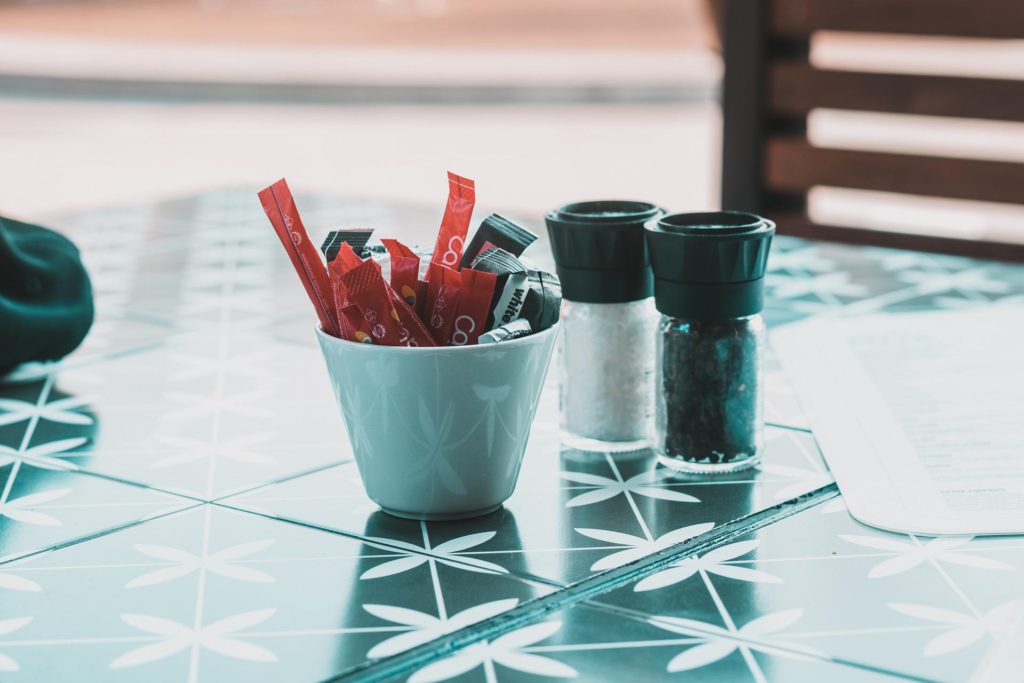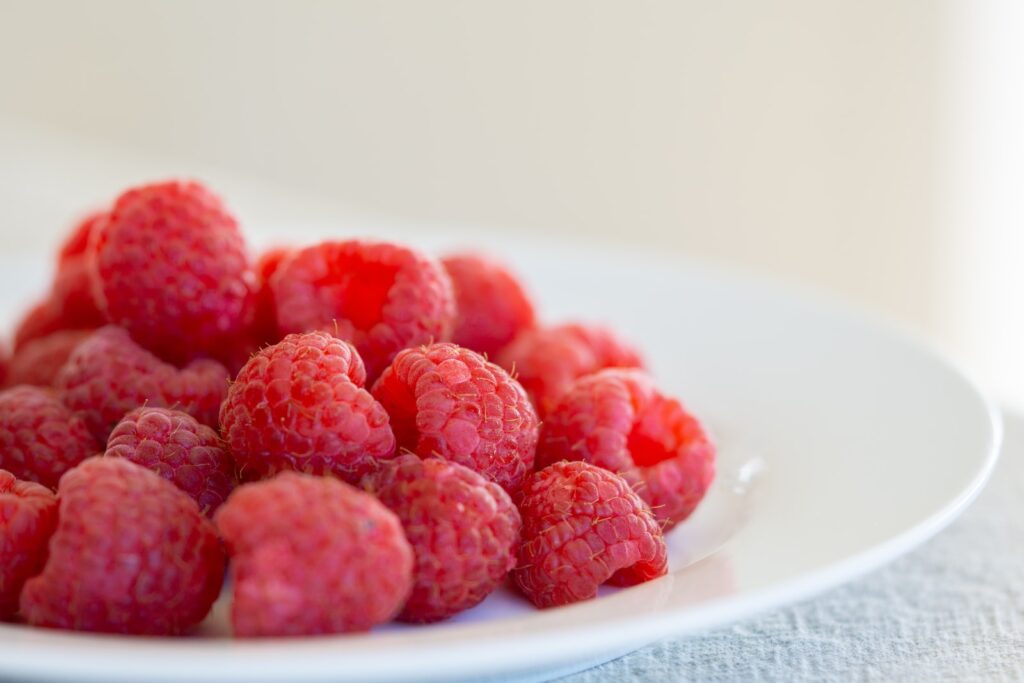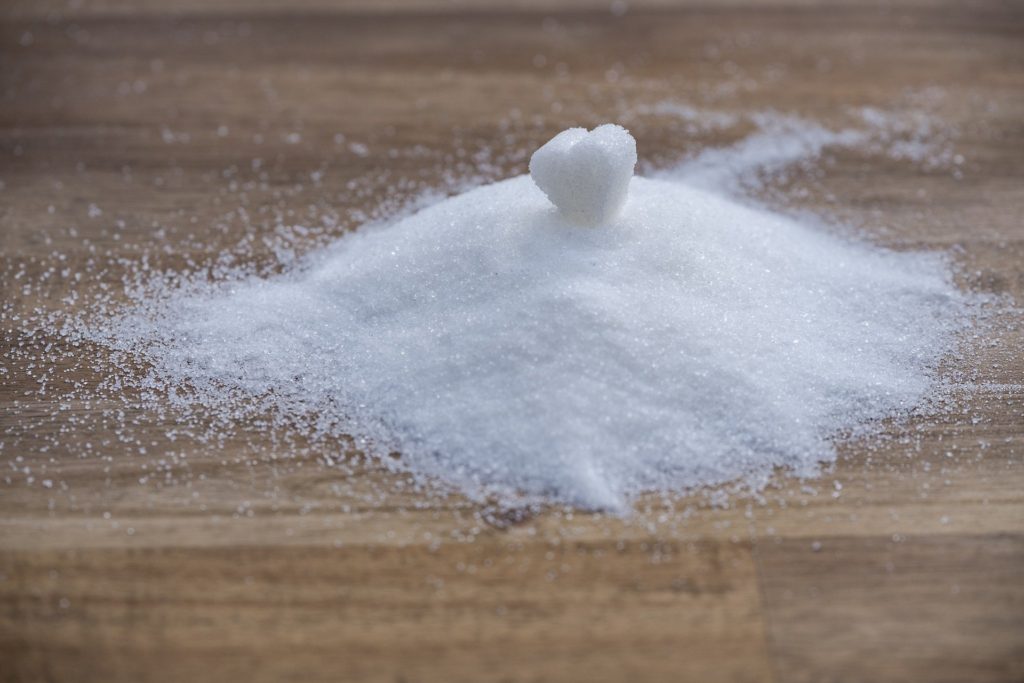Yes, artificial sweeteners are neurotoxins.
Studies have shown that consuming artificially sweetened foods on a regular basis increases your risk for stroke & dementia by 3x.
But, since artificial sweeteners are used by millions of people to reduce their sugar intake and avoid the negative health effects associated with sugar, you may be wondering if you should eat them or not.
In this article, I’ll discuss the science around why artificial sweeteners are neurotoxic & how they affect your brain.
I’ll also discuss my experience from the side of someone who was just trying to eliminate sugar from their diet without cutting out sweet foods entirely.
And then finally, I’ll help you to decide how often you should eat artificial sweeteners & which ones you should choose.
How Do Artificial Sweeteners Harm the Brain?
Artificial sweeteners harm the brain by overstimulating it, which causes it to create more waste products & oxidative stress. These waste products & oxidative stressors cause your brain cells to get damaged or even die. So, as more & more cells die or become damaged, you can develop problems like dementia & stroke.
But, it isn’t just artificial sweeteners.
It’s excitotoxins, or anything that stimulate your brain a lot at once.
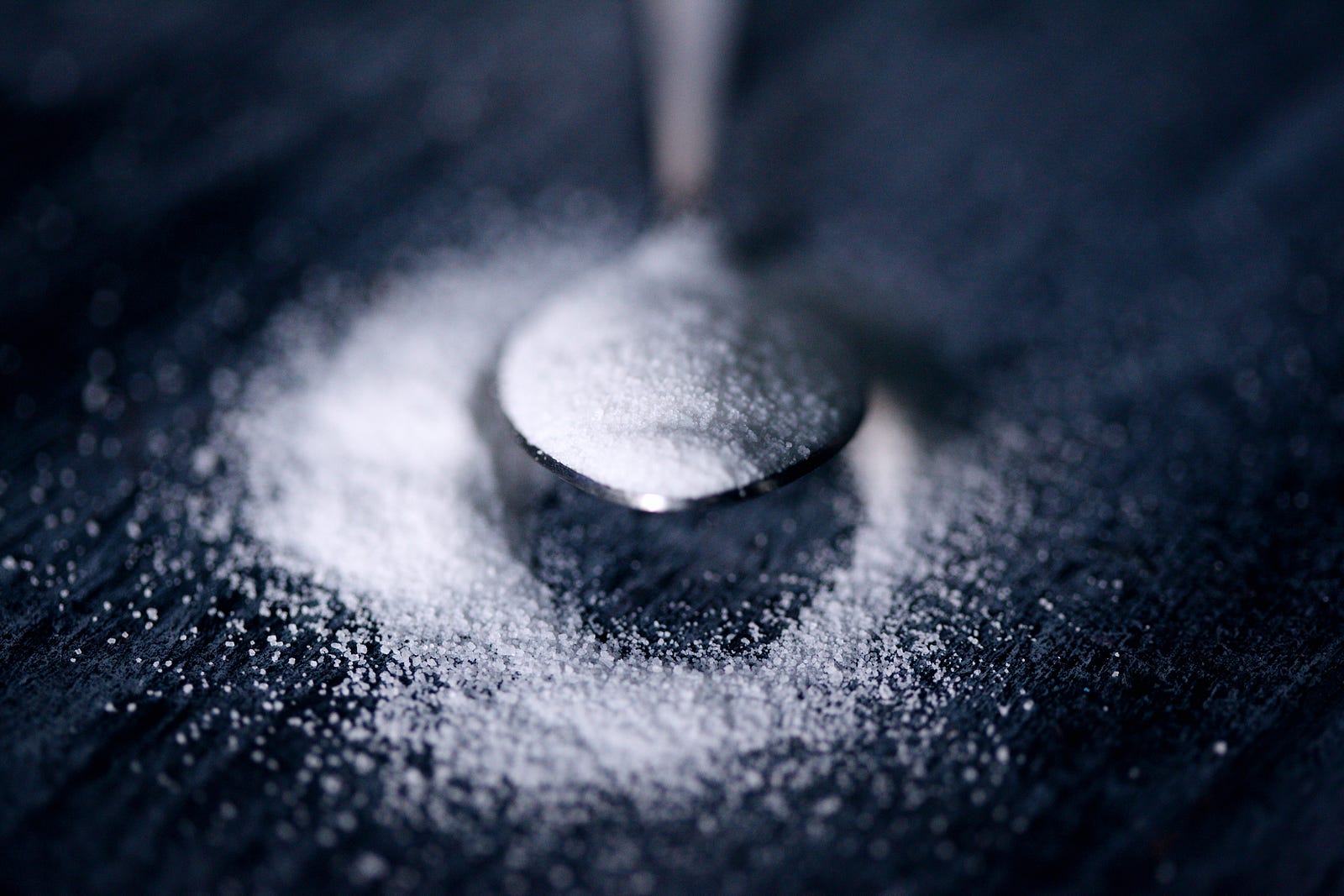
What Are Excitotoxins?
Excitotoxins are things that stimulate your taste buds a lot, but that also have toxic effects on your brain. The most common excitotoxins are artificial sweeteners & MSG. Excitotoxins are toxic because they overstimulate your brain cells, so your brain cells become numb or weakened.
Excitotoxins aren’t just artificial sweeteners or MSG, they’re other foods too.
Some examples of excitotoxins are things like monosodium glutamate, aspartame, saccharin, Sweet ‘N Low, sucralose, etc.
They’re just anything that is enhancing the taste of something to an unnatural extent.
Some would even say that Stevia, even though it’s natural, is considered an excitotoxin because it still elicits a strong response in your brain cells.
Some other excitotoxins that stimulate your brain a lot at once are things like drugs, super sweet desserts, etc.
And excitotoxins are called excitotoxins because when they hit your tongue, it triggers your taste buds to send a signal to your brain.
And it sends a signal to your brain to tell your brain that something is exceptionally sweet, even when it’s really not sweet.
For example, Stevia is around 100 – 300 times sweeter than sugar.
So when an artificial sweetener hits your tongue, it’s sending a positive communication that is kind of false.
And that’s causing your brain cells to become extremely, extremely excited.
But, that also causes oxidative stress & waste products which leads to the health problems we’ve discussed like stroke & dementia.
Do Artificial Sweeteners Cause Heart Disease?
Artificial sweeteners may cause heart disease. This is because the oxidative stress caused by artificial sweeteners can sometimes lead to what’s called lipid peroxidation, which is where fats go bad inside your arteries. This can thus increase your risk for heart disease.
So yes, there could be some links between neurotoxins like artificial sweeteners and MSG and heart disease later on down the line.
But, as long as you eat artificially sweetened foods & MSG on occasion, you’ll likely never run into these issues since the oxidative stress you cause is pretty low.
Now I’ll give you another example of how another neurotoxin, MSG, works so you can better understand how artificial sweeteners impact your brain.

How Does MSG Cause Strokes?
Monosodium glutamate can potentially cause strokes because when you consume glutamate, the glutamate attaches to your cells. And when that binding happens, it triggers an influx of what are called positive ions to flood into the cell. That creates a bunch of energy and eventually kills the cell.
That cell damage is why we end up seeing instances of stroke & dementia in people who eat a lot of MSG–filled foods like Chinese take–out.
But, as I mentioned before, as long as you don’t consume super–stimulating things like MSG or artificial sweeteners often, you probably won’t run into any of these health problems.
Should You Avoid Excitotoxins?
Though excitotoxins may sound super scary, you don’t need to completely avoid them to make sure that you don’t experience their negative health effects. Just try to limit the amount of stimulating foods like artificial sweeteners or MSG that you eat.
That means that you should only consume artificial sweeteners & MSG–filled foods on occasion.
Instead, focus on eating whole foods as the main part of your diet.
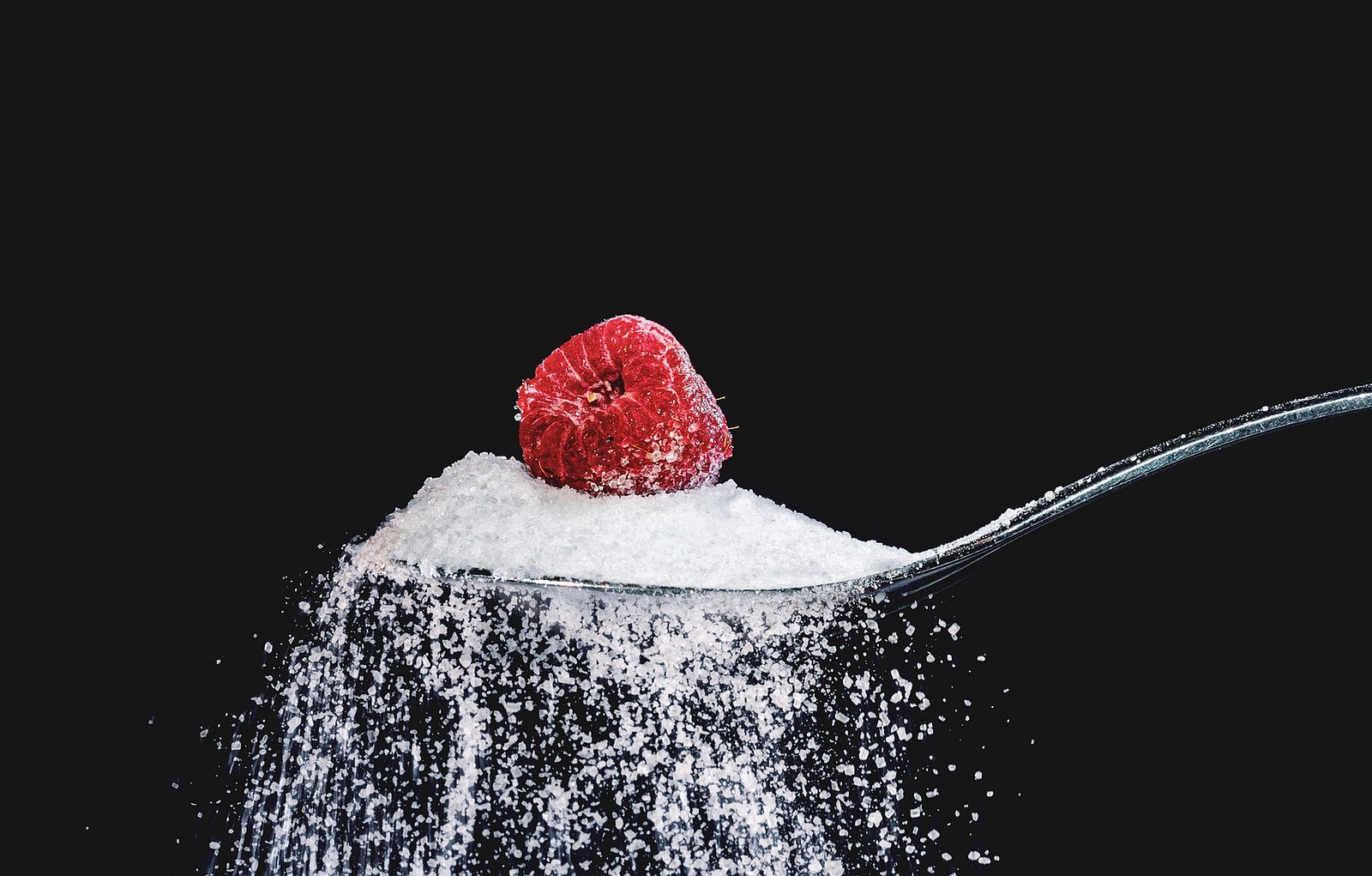
Should You Avoid Artificial Sweeteners?
No, you don’t need to avoid artificial sweeteners since artificial sweeteners are generally considered safe for most people, including children and pregnant women.
There’s little evidence that artificial sweeteners are bad for you.
They have been extensively tested for safety before being sold to consumers.
And while they may not be good for you, it’s also worth remembering that sugar is much worse for your health.
But, that doesn’t mean all artificial sweeteners are healthy.
Which Artificial Sweeteners Trigger An Insulin Response?
Some artificial sweeteners, like maltitol, xylitol, & sorbitol, when consumed, might trigger an insulin response even in people with normal blood sugar levels.
This is because many of these sweeteners are not metabolized by the body like natural sugars are.
Instead, they pass through the body unaltered.
For people trying to control their insulin, or people with diabetes, recognize that too many of the wrong artificial sweeteners can raise blood sugar levels.
*Disclaimer: Some of these links are Amazon affiliate links so I may earn a commission when you buy from them :)*
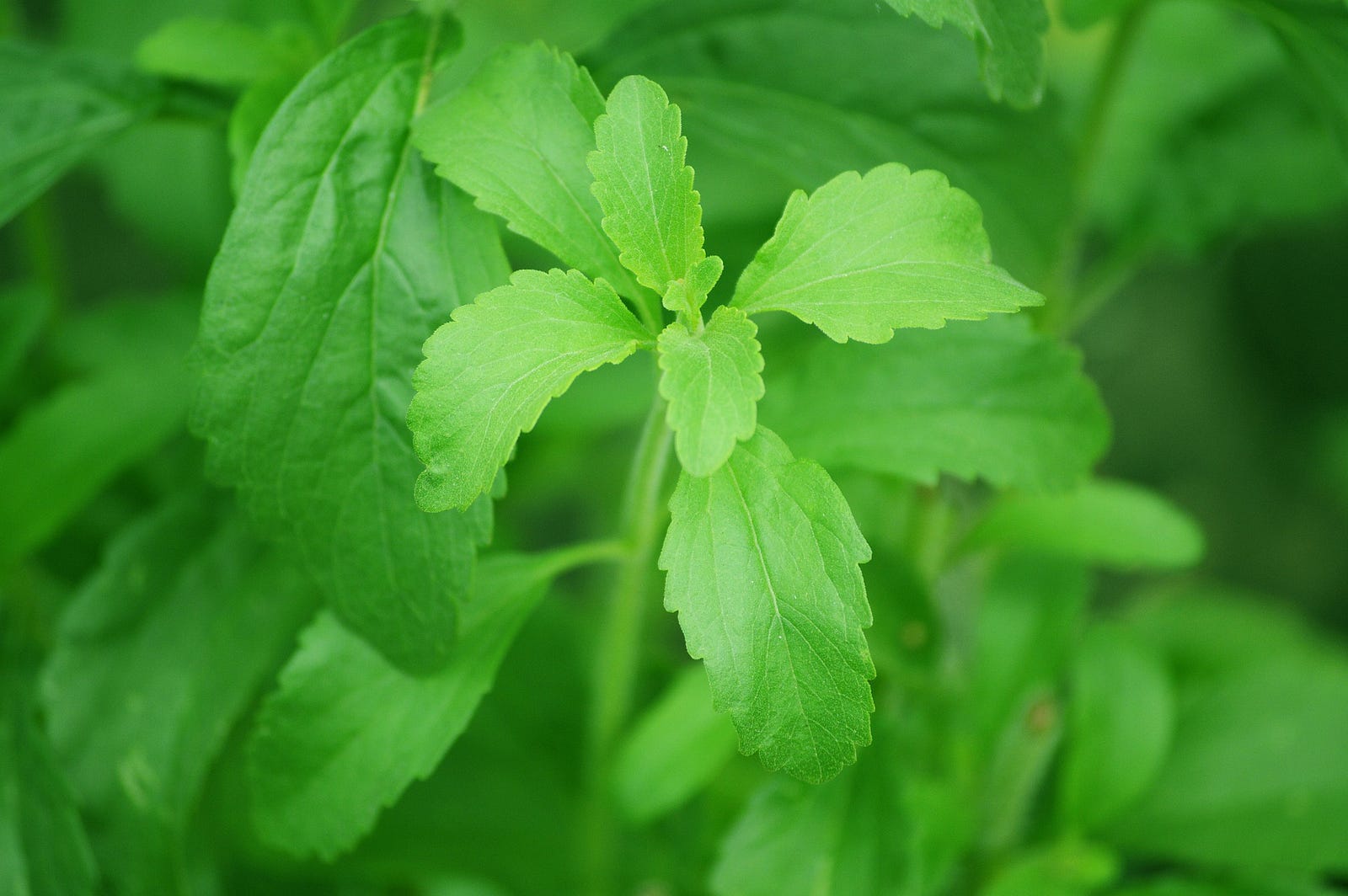
Natural Alternatives to Artificial Sweeteners
Here are some of the healthier, more natural alternatives to traditional artificial sweeteners:
- Stevia — Stevia is a plant-based sweetener that is around 200 times sweeter than sugar, so only small amounts are needed to achieve the desired sweetness. Stevia has been approved by the FDA and is considered a safe alternative to other, more artificial, zero-calorie sweeteners. Stevia has a negligible impact on blood sugar levels, so it is a suitable sweetener for people with diabetes or if you’re trying to cut out sugar from your diet. If you’re interested in a natural alternative to normal artificial sweeteners, you can buy my favorite organic stevia here.
- Monk Fruit — Monk fruit is another zero–calorie sweetener that is not associated with blood sugar spikes. Monk fruit sweetener is the extract that comes from the melon–like monk fruit plant, and it’s a great alternative to sugar. But, since monk fruit is as sweet as Stevia, being around 200x sweeter than sugar, make sure you only use a little bit of it at a time so you don’t become overstimulated. If you’re interested in buying monk fruit sweetener, you can buy my favorite brand of monk fruit here.
- Inulin — Inulin has a similar glycemic index rating compared to Stevia & monk fruit, so it’s also a great natural alternative to normal artificial sweeteners. But, that being said, inulin is actually less sweet than sugar, so you don’t have to worry too much about how much you’re using. If you’re interested in buying inulin as a natural alternative to other zero–calorie sweeteners, you can buy my favorite inulin here.
Conclusion
Artificial sweeteners have gotten a bad rap over the years, and while they have their drawbacks, they are generally safe.
For those who are trying to cut down on the amount of sugar they consume, artificial sweeteners are a great alternative.
However, it’s important to remember that no artificial food is without its consequences because everything we eat has an effect on our health.
And while artificial sweeteners are generally pretty safe, try to limit your consumption of them to only rare occasions so you don’t overstimulate your brain & cause neurotoxic effects.
If you want to find out why most artificial sweeteners are bad for you, & which ones you should use instead, you can read my article here where I go more in-depth on each artificial sweetener.
- Can You Still Lose Weight If You Aren’t in Ketosis? - February 8, 2023
- Can the Keto Diet Help With Depression? - February 8, 2023
- Why Does Processed Food Make You Fat? - January 2, 2023

